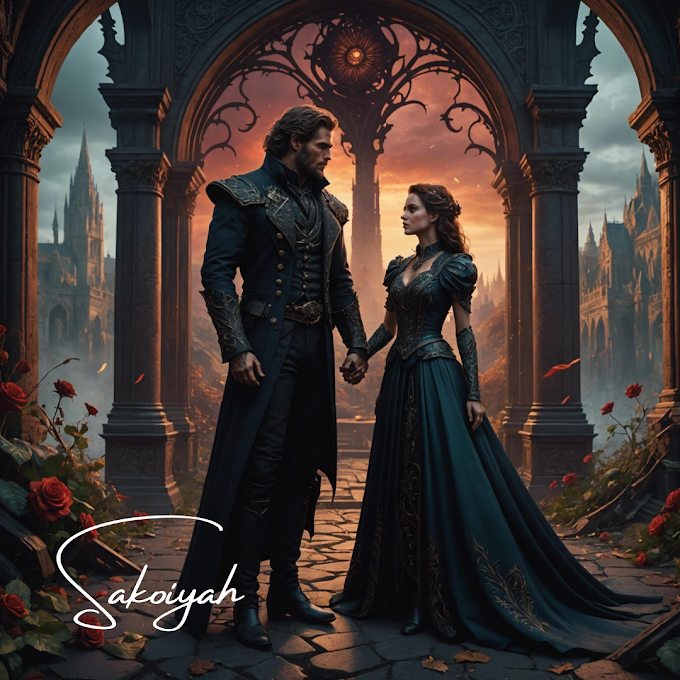This blog is all about 10 Effective Tips for Developing Strong Romantic Plotlines.
This blog is all about 10 Effective Tips for Developing Strong Romantic Plotlines.
Creating a compelling romantic plotline requires a delicate balance of chemistry, conflict, and character development. Whether you're writing a sweeping epic or a contemporary love story, these tips can help you develop romantic plot ideas that will captivate your readers.
1. Build Believable Characters
Characters are the heart of any romantic plot. For a romance
to feel genuine, your characters must be well-developed and relatable. Spend
time fleshing out their backgrounds, personalities, and motivations. Consider
the following:
Backstory: What past experiences shape their views on love?
Personality: Are they introverted or extroverted? Optimistic
or cynical?
Goals and Dreams: What do they want from life, and how does
romance fit into their plans?
2. Create Authentic Chemistry
The chemistry between characters is essential for a
believable romance. This goes beyond physical attraction; it's about emotional
connection and shared experiences. Here are some ways to build chemistry:
Shared Interests: Find common ground for your characters. It could
be a hobby, a cause, or a mutual friend.
Conflict and Tension: Healthy conflict can spark attraction. Think of
ways their differences can complement each other.
Moments of Connection: Include scenes where characters bond over
intimate conversations or shared vulnerabilities.
3. Develop a Compelling Conflict
Conflict is the engine that drives a romantic plot forward.
With obstacles, the romance can feel accessible and engaging. There are
various types of conflict you can introduce:
External Obstacles can be societal pressures, physical
distance, or opposing responsibilities.
Internal Struggles: Characters might battle personal fears,
insecurities, or past traumas.
Relational Conflicts: Misunderstandings, differing goals, or trust
issues can create tension.
4. Pace the Relationship Naturally
Rushing a romance can make it feel forced while dragging it
out can lose readers' interest. Find a balance by pacing the relationship
naturally:
Slow Burn vs. Instant
Attraction: Decide if your
romance will develop gradually or if there will be an immediate connection.
Both can be effective if handled well.
Milestones: Plot critical moments in the relationship, such
as the first meeting, first kiss, and first significant conflict.
Growth and Change: Show how the characters evolve individually and
together over time.
5. Show, Don't Tell
One of the cardinal rules of writing is to show, not tell.
This is especially important in romance. Rather than telling readers that the
characters are in love, show it through their actions and interactions:
Body Language: Describe the characters' gestures, expressions,
and physical reactions.
Dialogue: Use dialogue to reveal emotions, with subtext
adding depth to their conversations.
Symbolic Actions: Small, meaningful actions can speak volumes about
their feelings.
6. Incorporate Subplots and Secondary Characters
Subplots and secondary characters can enrich the central
romance by adding depth and complexity:
Supporting Characters: Friends, family, and rivals can provide insight
into the main characters' lives and create additional dynamics.
Subplots: Secondary storylines can mirror or contrast the central
romance, adding layers to the narrative.
7. Avoid Clichés but Embrace Tropes
While clichés can make your story predictable, tropes are
familiar elements that readers often enjoy. The key is to use tropes creatively
without falling into tired clichés:
Familiar Tropes: Enemies to lovers, forbidden love, and love
triangles are popular for a reason. Put your unique spin on them.
Avoiding Clichés: Steer clear of overused phrases and scenarios.
Instead, find fresh ways to portray romantic moments.
8. Create a Satisfying Conclusion
The resolution of your romantic plotline should feel earned
and satisfying. Consider the following:
Growth and Resolution: Ensure the characters have grown and overcome
obstacles.
Future Implications: Leave hints about the characters' future
together, giving readers a sense of continuity.
Emotional Payoff: Deliver an emotional climax that rewards readers
for their investment in the characters' journey.
Final Thoughts
By focusing on these elements, you can craft a romantic
plotline that resonates with readers and keeps them invested from beginning to
end. Happy writing!



.png)
.png)
.png)
.png)

.png)




.png)

.png)




0 Comments